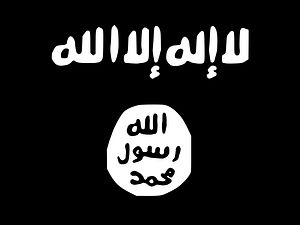The global reach of terrorism in the name of the Islamic State of Iraq and Syria (ISIS) has been on devastating display in three continents in just three weeks – from the downing of a Russian passenger aircraft over Mount Sinai in Egypt on October 31 to the attacks in Paris on November 13.
The threat of ISIS now looms so large that U.S. Secretary of State John Kerry has characterized the organization as “the gravest extremist threat faced by our generation and the embodiment of evil in our time.” To tackle this threat, U.S. President Barack Obama told the press on November 22, 2015 at the ASEAN summit in Malaysia that a broad global coalition of 65 nations to fight ISIS has emerged. However, rhetoric and bombings by Western powers aside, numerous other choices will determine the fate of ISIS and similar organizations. Crucial among them would be the willingness of western allies to contribute troops on the ground, the alignment of opposing objectives being pursued by different countries, the ability and willingness of the international community to curb the propagation of toxic religious creeds, and finally, choking off funds to terrorist organizations.
While the U.S.-led West seeks to forge a coalition to fight ISIS and simultaneously topple the Bashar al-Assad government in Syria, it is not eager to put its own troops on the ground. Therefore, it has encouraged countries in the region to engage ISIS. But the realities on the ground are complicated. Saudi Arabia, Turkey, and Iran have divergent objectives, particularly regarding the continuation of the Assad regime in Syria.
On the one hand, western countries along with their regional allies — Saudi Arabia and Turkey — prioritize the ouster of the Assad regime in Syria. Saudi Arabia has been accused of not just arming and funding the anti-Assad Free Syrian Army, but their more radical allies Jabhat al-Nusra. Turkey, while reluctantly joining the fight, prioritizes quelling Kurdish rebels over ISIS.
Russia and Iran, on the other hand, support the continuation of the Assad regime. A common strategy among all these countries must emerge if ISIS has to be eliminated. The Paris attack may just have managed to do that. France, which is coordinating with the United States, has also started to align bombings on ISIS targets with Russia.
The alignment of strategies, unfortunately, was short-lived. Cracks appeared immediately with Turkey shooting down a Russian fighter plane over an alleged violation of its airspace. Since Turkey is a member of NATO, tensions could have escalated but Putin has chosen to impose economic sanctions rather than take military action for the time being.
The prime minister of India, Narendra Modi, has drawn attention to the need to tackle the financial channels of terrorism at all major forums – from addressing the 69th session of the UN General Assembly in September to the G20 Summit in Turkey and the ASEAN summit in Malaysia in November, where he has argued against the use of terrorism as an instrument of state policy. He was advocating from the Indian experience of dealing with its own neighbors – Bangladesh and Pakistan – affording contrasting experiences. While Pakistani state institutions have traditionally harbored terrorists to foment unrest in India, especially in Jammu and Kashmir, Bangladesh underwent a dramatic change in stance since the advent of the Sheikh Hasina government in 2008. The country no longer affords safe haven to terrorists attempting to destabilize India’s northeast. Bangladesh’s policy change occurred principally because it recognizes that radical Islamist ideologies have begun to threaten its own existence.
Ultimately, only when Saudi Arabia acknowledges the danger to its own survival from past policies of support to extremist Islamist groups can it be a real partner against ISIS. Similarly, Turkey, another ally of the United States, must recognize that it cannot return to the past sterile policy of repressing its Kurdish population. Instead, it must resume negotiations with the Kurdistan Workers Party and extend support to the Kurdish Peshmerga who are presently fighting ISIS on the ground.
Iran, on the other hand will have to address the trust deficit with its Sunni-Arab neighbors. The West too must seek common ground with Russia not just over Assad but also over Ukraine. The West must also cease its unending interference in the affairs of the oil-rich yet ravaged region of West Asia before terrorist threats to itself grow more frequent and lethal.
The West may well succeed in forming a coalition of convenience with Russia and Iran and even commit troops on the ground to fight ISIS. However, if state sponsorship of terrorism remains unaddressed, it would be a case of winning the battle to lose the war. The West would do well to remind itself that it first armed, funded, and promoted the Islamist mujahideen in Afghanistan, in the fight against the Soviet Union, who went on to enable al-Qaeda.
That story is repeating itself. ISIS, a cult that broke away from al-Qaeda, now threatens not just the immediate region of West Asia but the security of the world. It would be the ultimate tragedy if ISIS were to be defeated, only to be replaced by yet another monstrous clone.
Neelam Deo is Co-founder and Director, Gateway House: Indian Council on Global Relations; She has been the Indian Ambassador to Denmark and Ivory Coast; and former Consul General in New York.
This article was originally published at Gateway House: Indian Council on Global Relations, a foreign policy think tank in Mumbai, India, established to engage India’s leading corporations and individuals in debate and scholarship on India’s foreign policy and the nation’s role in global affairs.

































